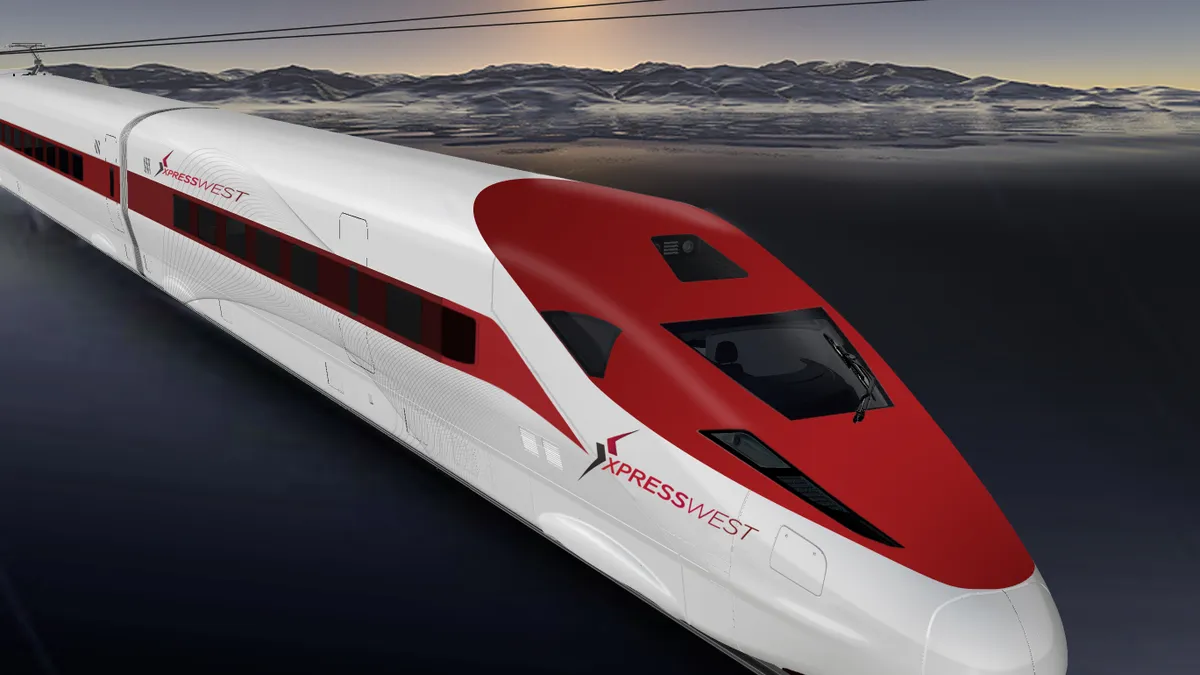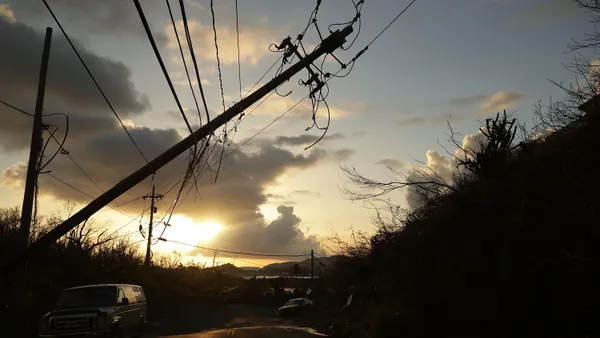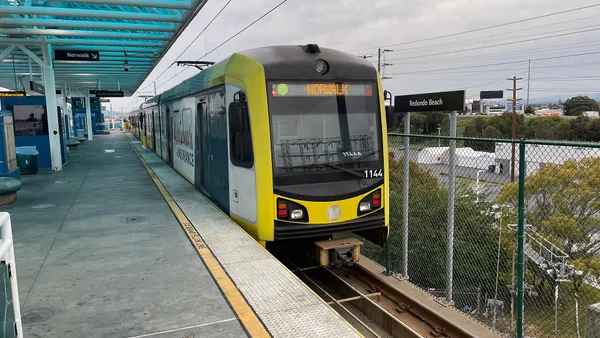Dive Brief:
- DesertXpress Enterprises LLC, an affiliate of Virgin Trains USA, has struck a lease deal with the California DOT (Caltrans) for a right of way along Interstate 15 as part of its $4.8 billion, 170-mile XpressWest bullet train from Southern California to Las Vegas. DesertXpress will pay an $842,000 annual lease payment, adjustable every three years. This year's pro-rated rent is $561,336.
- The lease agreement covers the 135-mile California portion of the privately funded project, which will see DesertXpress build the high-speed electric line, protected by barriers, in the median of I-15. DesertXpress will also operate and maintain the rail at its own expense. Xpress West service will take about 90 minutes one way.
- Even though Caltrans will not pay for the construction or operation of the train, which will start at Apple Valley, California, near the town of Victorville, it will provide oversight and quality control to ensure that the design and construction meet state standards.
Dive Insight:
Caltrans reported that the public has been supportive of the project, which is expected to create approximately 10,000 temporary construction jobs and cut carbon emissions by 300,000 metric tons per year. That is the equivalent, according to the agency, of taking 60,000 vehicles off the road.
Late last year, the California Infrastructure and Economic Development Bank (IBank) approved a $3.2 billion tax-exempt, fixed-rate revenue bond issuance to help DesertXpress finance the California portion of the project. This covers design and development, rail construction, operation and maintenance, a passenger station and maintenance facility, the purchase of train cars and electrification of the rail infrastructure.
The IBank recently approved DesertXpress's request for an extra five months to sell the bonds due to coronavirus-related delays. The new deadline is now Dec. 18.
The California High-Speed Rail Authority's (CHSRA) $100 billion bullet train project has not fared as well. The original estimated cost was $33 billion when, in 2008, Californians approved $10 billion of general obligation bonds to support the project, which was originally supposed to connect the San Francisco Bay area to Southern California. Since then the project costs have tripled and the way the authority has managed money and the rail project itself has come under fire from lawmakers and state auditors.
The Trump administration has revoked a $929 million Federal Railroad Administration grant for the project as well, and Gov. Gavin Newsom temporarily shelved all but one, 170-mile segment between Merced and Bakersfield.
The CHSRA said in its most recent report that it has been working to correct its issues.
Despite the authority's pledge to turn things around, the California Assembly voted last month to direct the CHSRA not to enter into any additional contracts pending the body's approval of $4.2 billion of bond funds next year.
During a discussion of the measure, California State Assemblyman Jim Frazier said that if the body did not act to restrict the authority's actions now, their opportunity to consider alternatives to the project would be gone and that the assembly would be "left out of the conversation" while still under obligation to pay for the rail.
"I personally have lost all confidence in this group to develop and deliver what they promised," Frazier said.
David Schonbrunn, president of the non-profit rail advocacy group Train Riders Association of California (TRAC) told Construction Dive that the group is doubtful the assembly will vote to award additional money to the rail project given the broad, bipartisan support of restricting the authority's ability to award major contracts.
Based on the floor debate, he said, the chances are "between slim and none."
If the assembly does refuse the authority additional money, he said, that will likely spell the end of even the scaled-down version of the project.
"I believe it is the end of the governor’s plan to have Merced-Bakersfield high-speed rail," he said. "The business plan adopted in December will probably look radically different from the draft that was circulated. I think they will have to move toward incremental improvements."












